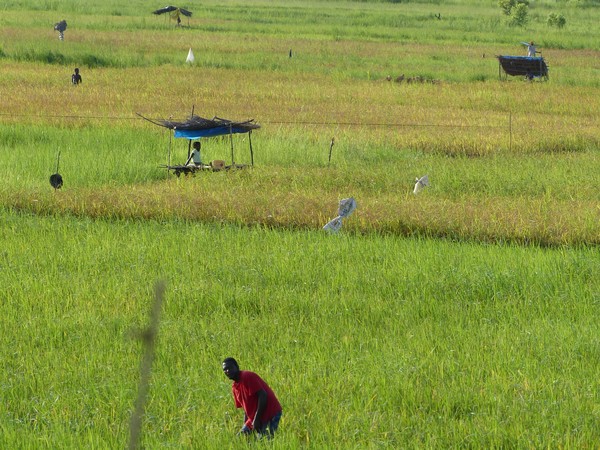Interpeace helps to reduce tensions in run-up to elections in Guinea-Bissau

Voz di Paz (The Voice of Peace), the joint programme of Interpeace and INEP (Instituto Nacional de Estudos e Pesquisas) in Guinea Bissau, launched a campaign in July 2008 to help ease tensions in the run up to the parliamentary elections to be held on 16 November.
As part of this process, 30 out of a total of about 40 community radios have been asked to broadcast the message of peace and tolerant citizenship. This Voz di Paz’ initiative will also be conducted after the election.
The initiative involves research and discussions among traditional leaders, imams, youth organizations as well as representatives of political parties at the local level. Subject themes are good governance and the rule of law, participation of citizens in issues of national relevance and sound management of natural resources.
Journalists who have been educated as peacebuilders are disseminating the findings and results over local radio programmes. A partnership between INEP and the Catholic radio, with whom it shares the programme’s name, forms a cornerstone in the strategy to involve the media in spreading the message of peace. A memorandum of understanding agreed in March 2007 between INEP and community radios in Guinea-Bissau has helped to ensure that reporting on political issues remains respectful, objective and in accordance with the principles of Voz di Paz peace building strategy.
Guinea-Bissau, which suffered from a bitter civil war in the 1990s, saw its first parliamentary and presidential elections in 1994. The country is divided into eight regions composed of different ethnic groups. Political actors at the national level have in the past been inclined to instrumentalize ethnic tensions in order to achieve short-term gains – something which could potentially result in a renewed outbreak of civil strife in the run up to the elections – hence the importance of this programme.
